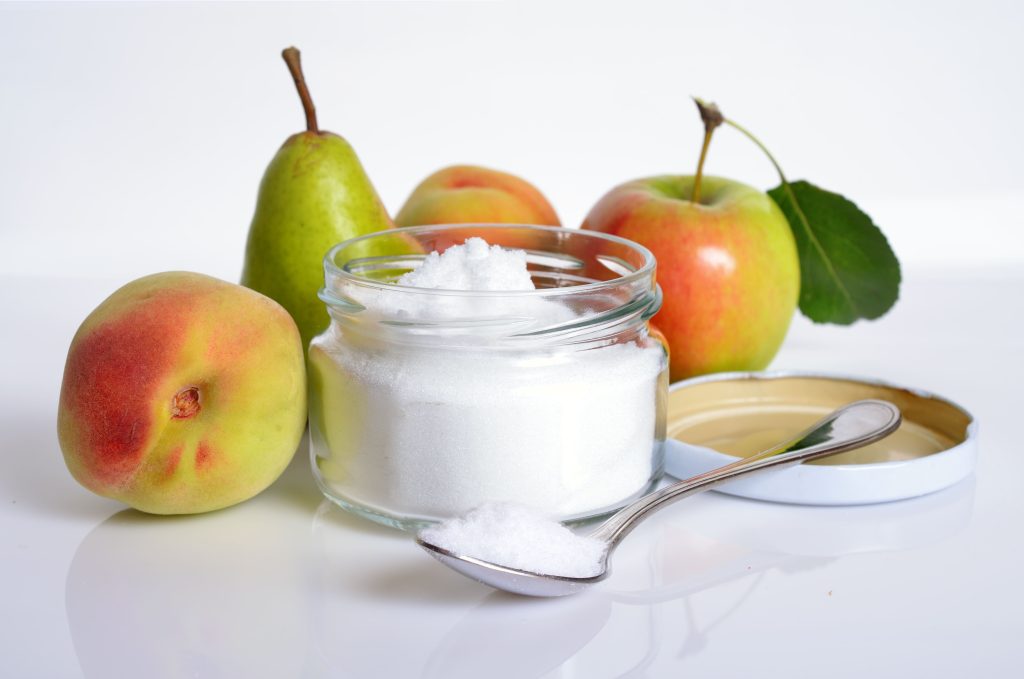In recent years, there has been a growing interest in understanding how the gut microbiota – the microorganisms in our gut – affects our health. This interest becomes particularly relevant when it comes to metabolic disorders such as obesity, Type 2 Diabetes, and other issues caused by abnormal lipid levels in the blood (dyslipidaemia).
A key factor in gut flora health is diet1. Our dietary choices not only influence our general well-being, but they are also crucial to ensure diversity and abundance in the microbial populations in the gut. A balanced and varied diet helps maintain a healthy and resilient microbiota, which makes it a precious ally for our health.
The presence of macronutrients (such as carbohydrates, proteins and lipids) and micronutrients (vitamins and minerals) in our diet is essential. Not only do these nutrients nourish our body, but they also play a crucial role in the composition of gut microbiota.1
These alterations may, in turn, actively impact our metabolism.1

Simple Carbohydrates, like sucrose and fructose, can cause rapid changes in the microbiota and potentially lead to metabolic dysfunctions. On the other hand, Complex Carbohydrates, commonly found in fruits, vegetables, and whole grains, are beneficial. These complex carbohydrates include elements like polysaccharides and starch, which are less easily digestible.
These elements are then broken down by intestinal bacteria into short-chain fatty acids (SCFA), including butyric acid. Butyric acid is an essential energy source for intestinal cells and plays a vital role in maintaining brain function and protecting the intestinal barrier.1
Therefore, it is important to:
– Consume Complex Carbohydrates like whole grains, fruits, vegetables, and legumes. These foods provide fiber that helps maintain a healthy gut microbiota.1
– Limit Simple Carbohydrates, such as simple sugars and refined sugars found in sweets, sugary drinks, and packaged snacks.1
Lipids, or fats, present in foods are fundamental for our body. Coming from both plant and animal sources, lipids provide energy, support the growth and development of the human body, and influence the gut microbiota.1
Saturated Fatty Acids (SFA):
Found in red meat and dairy products.
Monounsaturated Fatty Acids (MUFA):
Found in olive oil and nuts.
Polyunsaturated Fatty Acids (PUFA):
Found in fatty fish such as salmon, herring, and sardines.
It is important to maintain a balance between the various types of fatty acids (SFA, MUFA, PUFA). 1 The quantity and quality of lipids consumed not only affect overall health but also influence the composition of the gut microbiota. A varied diet helps provide a wide range of nutrients and promotes microbiota diversity. Try to include different types of fruits, vegetables, whole grains, lean proteins, and healthy fats.
Conscious food choices, such as favoring complex carbohydrates and balancing types of fats, can promote a healthy microbiota and contribute to maintaining good metabolic health. We truly are what we eat, so making informed food choices is essential for preserving our overall well-being.

The gut flora consists of a dynamic microbial system that is constantly challenged by many biological variables, including environmental factors, especially exercise, diet and stress.1
Exercising increases beneficial bacteria in our gut (such as butyrate producers) and accelerates the passage of stool, thus reducing the time in which pathogens can come in contact with the intestinal mucosa; this helps to decrease the action of these undesirable agents. The positive effects of exercise on gut health provide a better understanding of the benefits on overall health and quality of life that are boosted physiologically by exercising.

A Mediterranean diet has been observed to have beneficial effects on the microbiota. This diet is characterized by a high intake of fruits, vegetables, legumes, and complex carbohydrates, with moderate consumption of fish and olive oil as the main source of fat, and a low to moderate amount of red wine during meals. Subjects following the Mediterranean diet have more propionate and butyrate in their feces (beneficial substances produced by intestinal bacteria during digestion) and thus have a better bacterial population than those following a Western diet.1

Exposure to stressors has been shown to directly affect the composition of the gut microbiota and is therefore considered a promoter of dysbiosis, i.e., an imbalance in the composition or function of the microbiota. This can give rise to various physiological and behavioral responses, such as increased inflammation and impaired gut barrier function.1
With its ability to store energy, modulate the immune system and affect gastrointestinal health, the microbiota plays an important role in the well-being and performances of athletes.1
In turn, exercise, diet and fitness grade also promote a healthier gut microbiota, increasing microbial diversity and its positive effects on the body, modulating mucosal immunity and improving gastrointestinal barrier function.1
These differences are likely driven by the effects of physical training and/or diet.1
The gut microbiome of active individuals has a functional capacity for tissue repair and an increased ability to harness energy from food.1

Since nutrition strongly affects both the composition and function of the microbiota, which in turn plays an important role in the well-being of athletes, through proper nutrition we can improve the stress response and enhance the performance of physically active individuals.2
In general, athletes are encouraged to consume high amounts of simple carbohydrates and protein, and low amounts of fat and fiber, in order to provide a quick source of energy and, at the same time, avoid potential digestive problems. Athletes’ diet plans also rely on the consumption of certain micronutrients such as iron, calcium, amino acids, essential fatty acids, and antioxidants. However, the health of the gut microbiota is rarely considered in dietary choices.2

the lack of complex carbohydrates in athletes’ diets may adversely affect the composition and function of the gut microbiota in the long term. Increased consumption of complex plant polysaccharides (such as grains, legumes, fruits and vegetables) should be promoted to help maintain optimal gut flora function of the gut microbiota. It should also be taken into account that animal protein consumption should be reduced during rest and training days because it may negatively affect the gut microbiota. In addition, supplementing the diet with probiotics based on Bifidobacteria and Lactobacilli could help improve the metabolic, immune, and barrier function of athletes’ gut.2